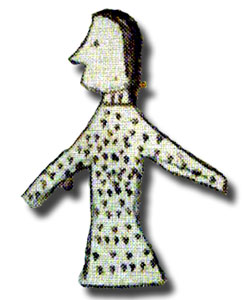We’ve launched a new web portal! Visit findhistory.nd.gov to search our collections.
Due to a road closure, the Killdeer Mountain Battlefield State Historic Site is temporarily closed.

In the years between the expedition and the close of the frontier in 1890, tribes who lived in the areas the Corps of Discovery visited fared very badly indeed. Almost immediately after 1806, fur traders representing many concerns went upriver to exploit the rich fur bearing regions Lewis and Clark had described. The result was an increased dependence on Euro-American wares, growing settlement, and the introduction of disease, notably smallpox. Indeed, the Mandan and Hidatsa were hit particularly hard in the late 1830's, resulting in a devastating loss of life. Other long-term results included the eventual introduction of the reservation system and allotment, a paternal government policy that ultimately reduced once self-sufficient peoples to poverty and despair.
Address:
612 East Boulevard Ave.
Bismarck, North Dakota 58505
Get Directions
Hours:
State Museum and Store: 8 a.m. - 5 p.m. M-F; Sat. & Sun. 10 a.m. - 5 p.m.
We are closed New Year's Day, Easter, Thanksgiving Day, and Christmas Day. We are closed at noon Christmas Eve if it falls on Mon.-Thurs. and are closed all day if it falls on Fri.-Sun.
State Archives: 8 a.m. - 4:30 p.m. M-F, except state holidays; 2nd Sat. of each month, 10 a.m. - 4:30 p.m. Appointments are recommended. To schedule an appointment, please contact us at 701.328.2091 or archives@nd.gov.
State Historical Society offices: 8 a.m. - 5 p.m. M-F, except state holidays.
Contact Us:
phone: 701.328.2666
email: history@nd.gov
Social Media:
See all social media accounts